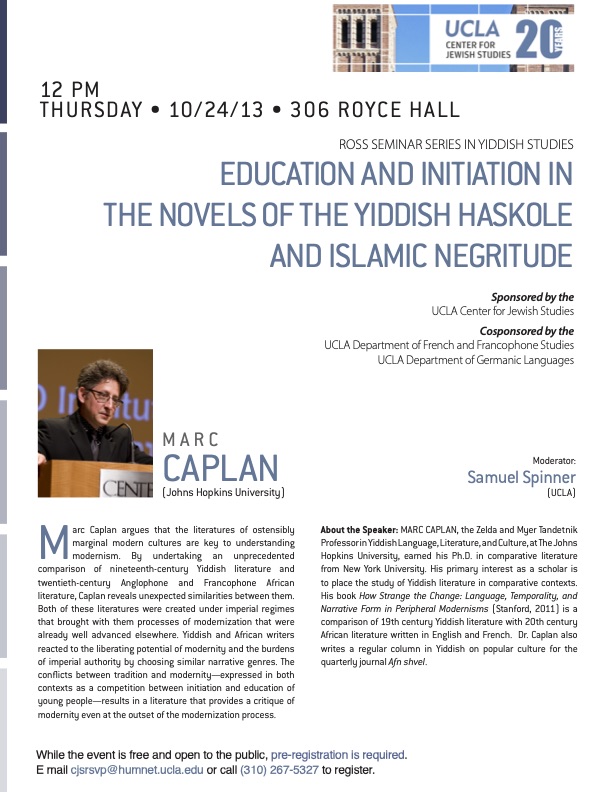
Marc Caplan argues that the literatures of ostensibly marginal modern cultures are key to understanding modernism. By undertaking an unprecedented comparison of nineteenth-century Yiddish literature and twentieth-century Anglophone and Francophone African literature, Caplan reveals unexpected similarities between them. Both of these literatures were created under imperial regimes that brought with them processes of modernization that were already well advanced elsewhere. Yiddish and African writers reacted to the liberating potential of modernity and the burdens of imperial authority by choosing similar narrative genres. The conflicts between tradition and modernity—expressed in both contexts as a competition between initiation and education of young people—results in a literature that provides a critique of modernity even at the outset of the modernization process.
About the Speaker: MARC CAPLAN, the Zelda and Myer Tandetnik Professor in Yiddish Language, Literature, and Culture, at The Johns Hopkins University, earned his Ph.D. in comparative literature from New York University. His primary interest as a scholar is to place the study of Yiddish literature in comparative contexts. His book How Strange the Change: Language, Temporality, and Narrative Form in Peripheral Modernisms (Stanford, 2011) is a comparison of 19th century Yiddish literature with 20th century African literature written in English and French. Dr. Caplan also writes a regular column in Yiddish on popular culture for the quarterly journal Afn shvel.